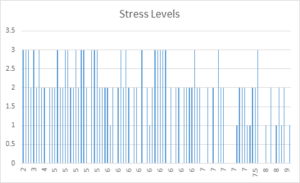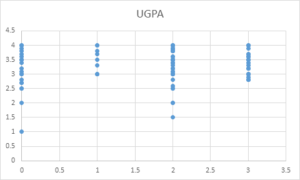Blog
How to Manage Stress
- March 16, 2020
- Posted by: Healthy Young NV
- Category: Mental Health Teen Tween

It is no lie that unhealthy levels of sleep are a rising threat among teenagers in this day and age. With increasingly busy schedules, higher expectations, and more opportunities, many teens and young adults are beginning to struggle with the three things that rule most of our lives: sleep, social lives, and academics. These are very large factors when it comes to increasing stress levels among this age group.
The Average Student
You are in high school and it’s the beginning of a new school year. You are in all of the electives you want in addition to the standard subjects. Perhaps you participate in a sport or some type of extra-curricular activity, and this is where you have established the close bonds you maintain with all of your friends. You find that throughout the year, more and more obligations are present, you have more friends to talk with, school is in full gear, and now that you’re settled in, teachers are giving more homework and harder tests. The pressure of doing well in school, meeting those standards, and maintaining relationships with friends are conflicting and already hard to juggle. To make this all worse, you are a teenager developing into an adult, and you require a lot more sleep. You are overwhelmed with stress, there’s too much on your shoulders, and you are feeling overwhelmed. You want to do well in school, you REALLY want to hang with the homies, but even more so, you’re incredibly tired all the time.
I know this scenario well because I have been living it for as long as I can remember. And this doesn’t even account for other stress factors like money, food, work, and mental or physical health. Many students are even dealing with a more severe form of social stress, which may be causing loneliness and lack of self-confidence. We are so concerned with other people and preparing for the future that we sometimes forget to care for ourselves in the moment. That brings us to sleep, and how it affects everything.
The Importance of Sleep
Over my few years on this earth, I have discovered many things about myself, but one of the most important things I discovered is how important sleep really is. The beginning of freshman year in high school was one of the most stressful situations I have ever endured. I had a lot going on in my life, along with many obligations after school, and was expected by my family and teachers at school to handle it all easily as my brother did, years prior (He is now at the USMA at West Point). During this time, I got on average about five hours of sleep a night. One day I remember worrying about something rather irrelevant and there was so much stress on my shoulders, then suddenly, something magical happened. I fell asleep on my bed.
Hours later, I woke up feeling refreshed. I no longer felt stressed – even though I still had to deal with my problems, I had no worries. My mind was cleared, and I was ready to get to work, which helped me make it through this difficult time. More recently, to confirm this suspicion that sleep really could counteract the stressful effects of maintaining a social life and good academics, I did a study of students at my high school. What follows is the data I have collected from a random assortment of more than 100 students. These students were born in different places and are different genders, races, and cultures. They come from different economic backgrounds, have different grades, maintain different levels of physical activity, and this data comes from young people that are between 12 and 19 years of age.
This first graph represents how the average hours of sleep per night per student relate to how stressed they felt. The stress level is on a 3 point scale – 0 not experiencing stress, 1 experiencing low levels of stress, 2 experiencing moderate-severe levels of stress, and 3 experiencing unhealthy levels of stress. As students approached the recommended amount of sleep for their age (8-10 hours of sleep per day), the frequency of severe stress goes down considerably, and a lot more 0’s and 1’s begin to occur. It is evident that there is an abundant amount of unhealthy levels of stress within students that were two or more hours away from this suggestion of 8-10 hours of sleep.
This next chart, comparing students’ unweighted grade point averages with their levels of stress, supports that less stress leads to improved academic performance. There is a considerably higher frequency of UGPA’s above 3.5 on the lower ends of the graph, and when further analyzing the data collected, most people that have good grades claimed to not be stressed because of other factors, like work, but were rather more concerned with maintaining friends and those good grades. They reported feeling much more insecure about where they stood, academically, than those who got more sleep and also did well academically. I would argue, if one was to track these students continuously, those students with less sleep grades would fall over time, along with their emotional and psychological health. After all, 85% of students who surveyed that they felt mentally unstable were currently balancing social lives, with above average grades and below average sleep. They thought that this was severely affecting their mental wellbeing.
Ultimately, this confirms my suspicion that sleep really does affect how we feel on a day to day basis. It is also notable that only 1.92% of over 100 students surveyed actually met the recommended amount of sleep by Johns Hopkins Pediatrician, Micheal Crocetti, MD., MPH. (9 ½ hours/24 hours). This is the same percentage of students who surveyed that they had an average of only 2 hours of sleep per night. It’s no wonder that ⅘ of students reported that they suffered from stress or anxiety.
What Can You Do?
One of the main solutions to a lot of stress is simple, and supported by the data. Get more sleep. Along with feeling better, there are countless health benefits that go along with getting more sleep; besides, we all love to sleep, don’t we?
Here are a few tips on how to get more sleep:
Bottom line, sleep is important. At least give getting more sleep a try – it can’t hurt and you can always revert back to your old habits if you’re unsatisfied. Although I honestly doubt you’ll be disappointed. Sweet dreams!
*Disclaimer*: This study was done by the author of this blog and has not been peer-reviewed for accuracy. The study was done at a high school in Washoe County School District.
This blog was written by Riley, a sophomore in Washoe County School District and a High Sierra AHEC Student Ambassador that plans to go on and study Public Health in college.
Resources:
https://www.hopkinsmedicine.org/health/wellness-and-prevention/teenagers-and-sleep-how-much-sleep-is-enough
Washoe County High School Students


